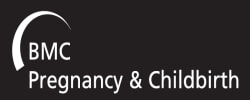 A paper in Immnunity has been retracted after two separate panels determined some of the figures “inappropriately presented” the data but cleared the team of wrongdoing.
A paper in Immnunity has been retracted after two separate panels determined some of the figures “inappropriately presented” the data but cleared the team of wrongdoing.
However, the original data are now unavailable, according to the notice, so there’s no way to know if the paper’s conclusions are sound.
Here’s the notice for “Suppressors of Cytokine Signaling 2 and 3 Diametrically Control Macrophage Polarization”: Continue reading Immunology paper retracted for inappropriate presentation but “no evidence of intentional misconduct”

 Another retraction has appeared up for frequent fliers Jun Li, Kailun Zhang and
Another retraction has appeared up for frequent fliers Jun Li, Kailun Zhang and  A 2011 paper in PLOS ONE has been retracted due to “inappropriately assembled” images. The issues, which were highlighted in a correction in TK, are attributed to the corresponding author, Paola Palozza, who has since passed away.
A 2011 paper in PLOS ONE has been retracted due to “inappropriately assembled” images. The issues, which were highlighted in a correction in TK, are attributed to the corresponding author, Paola Palozza, who has since passed away.

 An expression of concern has been issued for the second of three papers on the idea that, if you have three positive emotions for every negative one, you will be more successful in life.
An expression of concern has been issued for the second of three papers on the idea that, if you have three positive emotions for every negative one, you will be more successful in life.
 This one seems like an honest mistake: a paper on dietary supplements during pregnancy has been retracted based on an error in data recording.
This one seems like an honest mistake: a paper on dietary supplements during pregnancy has been retracted based on an error in data recording.